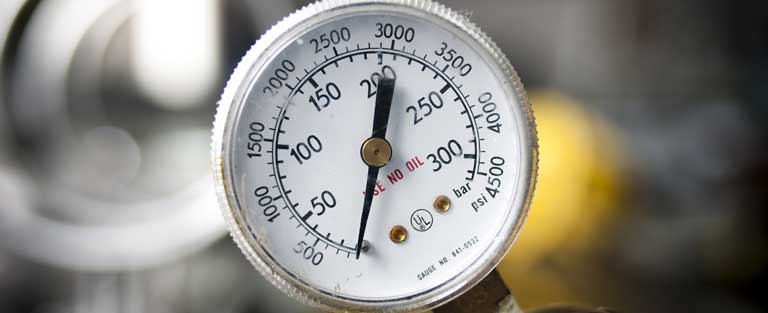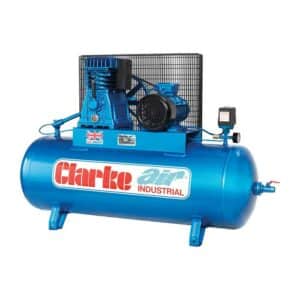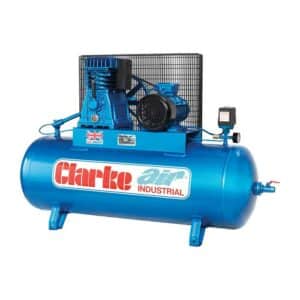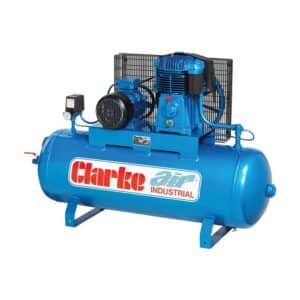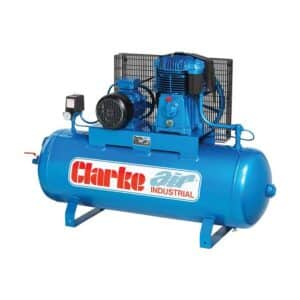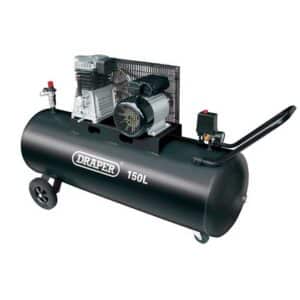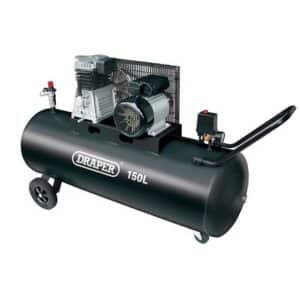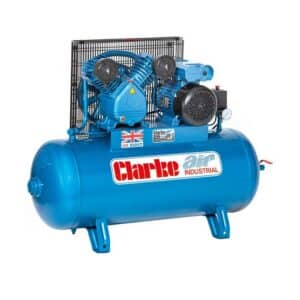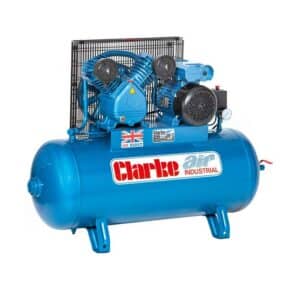Guide to Industrial Electric Air Compressors
Guide to Industrial Electric Air Compressors
Industrial electric air compressors are essential tools in various industries, providing the power needed to operate a range of pneumatic tools and machinery. Whether you are setting up a new workshop or upgrading your existing equipment, understanding the nuances of industrial air compressors can help you make informed decisions. This comprehensive guide will cover everything from the basics to specific considerations when choosing an air compressor, ensuring you have all the information you need to optimize your operations.
Shop Industrial Electric Air Compressors
What is an Industrial Electric Air Compressor?
An industrial electric air compressor converts electrical energy into potential energy stored in pressurized air. It uses a motor to drive a pump, which compresses air and stores it in a tank. This compressed air can then be used to power various tools and machinery, making it a crucial component in industries like manufacturing, automotive, construction, and more.
What is the Biggest 240V Air Compressor?
The biggest 240V air compressors are designed to deliver high air volume and pressure while operating on a standard electrical supply. One of the largest models available is the Clarke XE37/270 (OL), boasting a 270-litre tank and 36cfm air displacement from twin compressor pumps. These powerful units are suitable for demanding industrial applications where high airflow is essential.
What Size Industrial Air Compressor Do I Need?
Choosing the right size air compressor depends on your specific needs. Key factors include:
- Air Flow (CFM): Determine the total CFM (Cubic Feet per minute) requirement by adding up the consumption of all the tools you plan to use simultaneously.
- Tank Size: Larger tanks provide a steady supply of air and reduce the frequency of motor start/stop cycles.
- Pressure (PSI): Ensure the compressor can deliver the required PSI (Pounds per Square Inch) pressure for your tools and applications.
Which Type of Compressor is Best for Industry?
Choosing the right type of compressor for industrial use is crucial for ensuring efficiency, reliability, and cost-effectiveness. Here’s a more detailed look at the main types of industrial air compressors and their best applications:
Reciprocating (Piston) Compressors
Reciprocating compressors, also known as piston compressors, are widely used in various industrial settings. They operate by using a piston driven by a crankshaft to deliver air at high pressure.
Applications:
These compressors are ideal for intermittent use and applications requiring high pressure. They are commonly found in automotive repair shops, small manufacturing facilities, and any setting where air tools are used sporadically rather than continuously.
Advantages:
- High Pressure Output: Capable of achieving high PSI levels, making them suitable for demanding tasks.
- Versatility: Can be used with a variety of tools and equipment.
- Cost-Effective: Generally more affordable upfront compared to other types.
Disadvantages:
- Noise: They tend to be noisier than other compressor types.
- Heat Generation: Can generate significant heat, requiring adequate cooling mechanisms.
- Maintenance: Require regular maintenance due to many moving parts.
Rotary Screw Compressors
Rotary screw compressors are designed for continuous operation, making them suitable for environments where a constant and reliable air supply is essential. They use two rotors to compress air, which results in a smooth and steady airflow.
Applications:
These compressors are ideal for industrial applications that require a continuous and steady supply of compressed air. They are extensively used in manufacturing plants, construction sites, and large workshops.
Advantages:
- Efficiency: Provide a consistent airflow with minimal fluctuations.
- Quiet Operation: Quieter compared to reciprocating compressors, making them suitable for indoor environments.
- Longevity: Designed for continuous use with a longer operational lifespan.
Disadvantages:
- Cost: Higher initial investment compared to piston compressors.
- Complexity: More complex design can lead to higher maintenance costs.
Centrifugal Compressors
Centrifugal compressors are used for large-scale industrial applications that require very high air volumes. They work by transferring energy from a rotating impeller to the air, which increases the air velocity and pressure.
Applications:
Ideal for large industrial processes such as petrochemical plants, refineries, and large-scale manufacturing operations where vast amounts of air are needed.
Advantages:
- High Airflow: Capable of delivering extremely high volumes of air, making them suitable for extensive operations.
- Efficiency: High efficiency at producing large quantities of compressed air.
- Low Maintenance: Fewer moving parts compared to reciprocating compressors, leading to lower maintenance requirements.
Disadvantages:
- Size and Space: These compressors are typically large and require significant space for installation.
- Cost: Very high initial investment and installation costs.
Selecting the right type of industrial air compressor involves evaluating your specific operational needs, the scale of your operations, and your budget. Reciprocating compressors are excellent for high-pressure, intermittent tasks, rotary screw compressors offer reliable continuous operation for medium to large facilities, and centrifugal compressors are the go-to choice for large-scale industrial applications requiring vast amounts of compressed air. By understanding the strengths and limitations of each type, you can make an informed decision that ensures optimal performance and cost-efficiency in your industrial processes.
Shop Air Compressors
How Good Are Industrial Electric Air Compressors?
In this Guide to Industrial Electric Air Compressors we seek to answer the question, how good are they? The short answer is, very good, though it depends on your operational needs; industrial electric air compressors are highly efficient, offering several benefits:
- Efficiency: Provide consistent performance with lower operating costs compared to fuel-powered models.
- Convenience: Easier to maintain and operate.
- Environmental Impact: Produce fewer emissions and are quieter than fuel-powered alternatives.
How Long Do Electric Air Compressors Last?
The lifespan of an electric air compressor can vary, but with proper maintenance, they can last 10-15 years or more. Regular servicing, proper usage, and adhering to the manufacturer’s guidelines are crucial for longevity.
Do Air Compressors Use a Lot of Electricity?
Air compressors can be energy-intensive, particularly larger industrial models. The electricity usage depends on the motor power (HP) and how frequently the compressor runs. Energy-efficient models and proper usage can help manage electricity consumption.
What Type of Air Compressor Lasts the Longest?
Rotary screw compressors typically have a longer lifespan due to their design, which allows for continuous operation with minimal wear and tear. Regular maintenance and proper usage further enhance their longevity.
Which Compressor is Best for High Pressure?
Reciprocating compressors are best suited for high-pressure applications. They are capable of delivering air at high PSI levels, making them ideal for tasks requiring significant force.
Is a Bigger Tank Better for an Air Compressor?
A bigger tank provides more stored air, reducing the frequency of the motor cycling on and off. This is beneficial for tasks requiring a steady supply of air over longer periods and helps prolong the compressor’s life by reducing wear on the motor.
How Big Air Compressor Do I Need to Paint a Car?
For painting a car, you need an air compressor with a minimum of 14-18 CFM at 90 PSI and a tank size of at least 60 gallons. This ensures a continuous supply of air for spray guns, leading to a smooth, even finish.
What Size Air Compressor Do I Need for a Body Shop?
A body shop typically requires a compressor with a higher CFM rating due to the variety of air tools used, such as sanders, grinders, and spray guns. A compressor with 15-20 CFM at 90 PSI and a 60-80 gallon tank is generally sufficient for most body shop needs.
What Strength Air Compressor Do I Need?
The strength of an air compressor, measured in PSI and CFM, depends on the tools and applications. Most industrial tools require around 90 PSI, but check the specific requirements of your tools to ensure compatibility.
How Do I Choose an Air Compressor Capacity?
To choose the right air compressor capacity:
- List Your Tools: Identify all air tools you will use and their CFM requirements.
- Calculate Total CFM: Add the CFM of all tools you plan to run simultaneously, then add 25-30% as a buffer.
- Consider PSI Requirements: Ensure the compressor can deliver the necessary pressure.
- Select Tank Size: Choose a tank size that provides a consistent air supply for your applications.
Conclusion
We hope you found this Guide to Industrial Electric Air Compressors useful. In summary, choosing the right industrial electric air compressor is crucial for maximizing efficiency and productivity in your operations. By understanding the different types, sizes, and specific requirements for your applications, you can make an informed decision that meets your needs and ensures long-term reliability. Whether you need a compressor for a body shop, automotive work, or any other industrial application, the right compressor will enhance your workflow and deliver consistent performance. We provide a comprehensive range of industrial electric air compressors to suit your requirements and budget. We have also provided further reading in our Air Compressor Guide.



